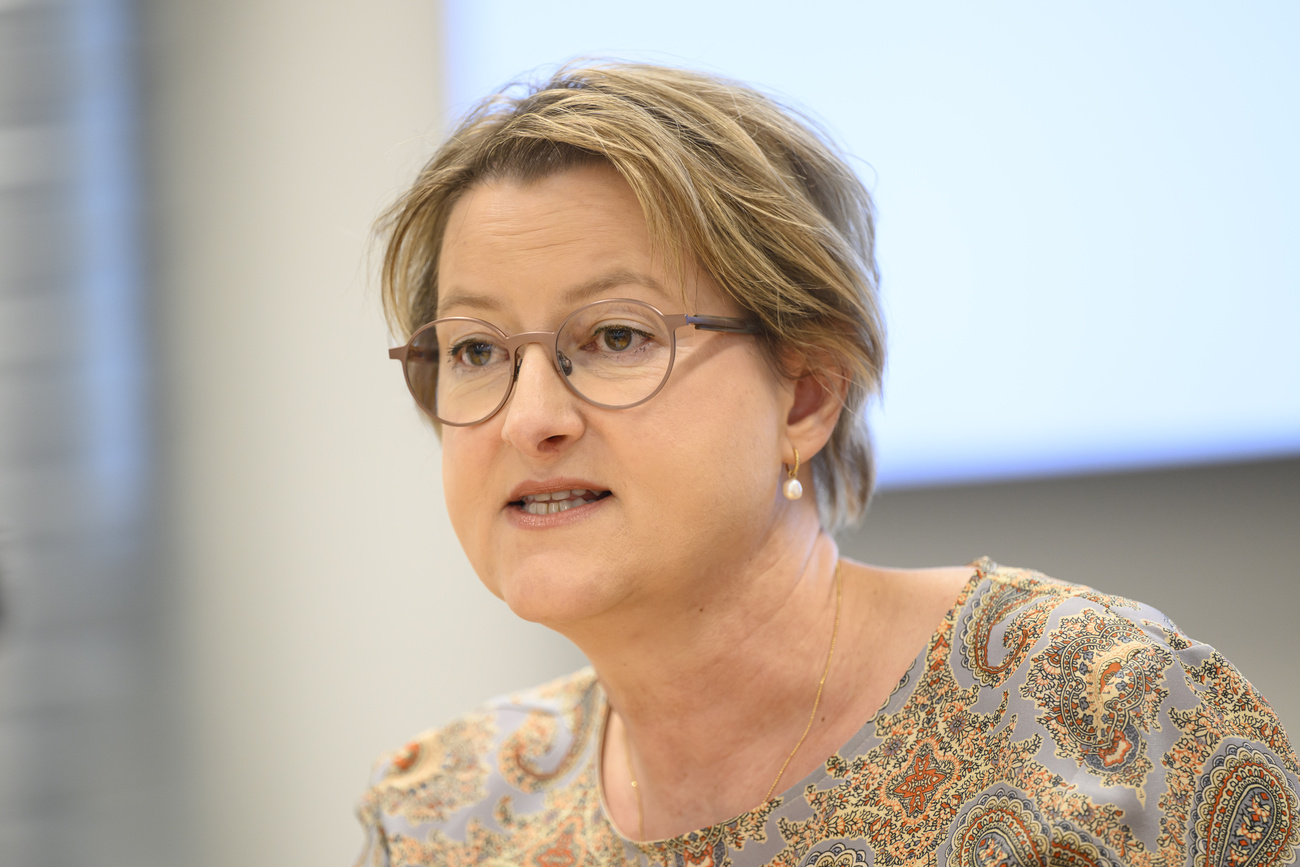
Germany grapples with assisted suicide

Germans who come to Switzerland to end their lives through assisted suicide have created controversy at home. Now, with a proposed assisted suicide law before the German parliament, the emotionally charged right-to-die debate is moving toward a grand finale.
“I hope when I come to the point that I want to die, that my husband will accompany me to Switzerland, that he will sit beside me and hold my hand when I drink the poison,” Anna Schneider said in an interview with the German newspaper Die Zeit.
The heartfelt words of the 65-year-old, who is suffering from a severe form of breast cancer, caused a major stir. Because the husband in question was none other than the head of the Evangelical church in Germany. And as the highest representative of the church, Nikolaus Schneider is strictly opposed to assisted suicide, as practiced by organisations like Exit and Dignitas in Switzerland. Yet he agreed he would stand by his wife, despite his beliefs.
Two camps
The interview, published in July, re-ignited an intense debate about assisted suicide. “There is hardly any other subject that is discussed in Germany as emotionally, controversially and ideologically,” writes palliative care doctor Gian Domenico Borasio from the University of Lausanne in his new book, Deciding to Die.
Borasio, who studied at Munich University, knows the situation in both countries well. Germany seems to be split into two camps, he told swissinfo.ch. While some are passionately calling for the legalisation of assisted suicide – facilitating suicide or even killing someone suffering from an incurable disease at their request – the other camp, supported by the two largest churches, is strictly opposed to assisted suicide in any form.
‘Suicide tourism’
If Anna Schneider were to decide to take this step, she would not be an isolated case. Hundreds of foreigners have travelled to Switzerland in recent years seeking death through assisted suicide.
According to a University of Zurich study published in the Journal of Medical Ethics, there were 611 cases of what the study authors called ‘suicide tourism’ between 2008 and 2012.
The people who wanted to die came to Switzerland from 31 countries, but by far the largest number came from Germany. Assisted and accompanied by Dignitas – the only Swiss organisation that provides the service to people who are not residents of Switzerland – 268 people from Germany ended their lives in Switzerland in those five years. According to the study, the number of people travelling to die increased sharply. Assisted suicide organisations point out that the figures are relatively stable if viewed over a longer period.
Limited phenomenon
According to Borasio, the figures must be seen in context: “Every year more than 800,000 people die in Germany.” The number of Germans approaching Dignitas is minute in comparison, he says, which shows that the media and political debate are all out of proportion. Still, the debate touches on the fears people have of death and suffering. “At the end only very few patients choose suicide, but many are afraid they may need this option and not be able to access it,” Borasio told swissinfo.ch.
The legal position in Germany is clear in relation to actively helping someone to die. Killing on request is a crime, as it is in Switzerland. However, helping someone to commit suicide themselves is not legally regulated in Germany. So a legal grey zone exists, especially for doctors.
“The medical councils in several [German] federal states forbid their members to help patients to die. If doctors go ahead and do this, they run the risk of losing their right to practice,” said social democrat Karl Lauterbach in an interview with Der Spiegel magazine. Many do cross this line, in secret, without rules or oversight.
Reform proposals
For this reason Borasio and three of his colleagues – ethicist Ralf Jox from the Ludwig Maximilian University of Munich, medical ethicist Urban Wiesing from Tübingen University and Jochen Taupitz of the German Council of Ethics – have drafted and presented a proposed law that would allow doctors to help people kill themselves. Patients requesting assisted suicide would have to be informed “thoroughly and in a life-oriented way about other options – palliative care in particular”. The doctor must be convinced that patients are acting of their own free will, and is obliged to seek the advice of another independent doctor.
Different approach
“We decided against the Swiss model,” Borasio said, explaining that it was based on a purely negative law. Assisted suicide is not a criminal offence in Switzerland, as long as the person helping is not acting out of selfish motivation. A duty of care – a requirement to ensure that patients are sufficiently advised medically and are made aware of their alternatives – is missing in Swiss law.
“Many people’s fears and worries can be dispelled through advice about palliative medical care,” Borasio said. In this way, opening up the legal possibility of assisted suicide could ultimately help dissuade people from their suicide plans.
“Anyone who is serious about protecting life must put in place rules for responsible assisted suicide,” says ethicist Ralf Jox.
Before parliament
The issue could come before the German Federal Parliament in late Autumn, if its detractors don’t manage to postpone the debate until 2015. But it is difficult to gauge whether a bill supporting assisted suicide will pass. Health minister Hermann Gröhe of the Christian Democrats prefers a law that will forbid any kind of organised assisted suicide. That would affect associations as well as doctors. Leading Christian Democrats, such as Chancellor Angela Merkel and the party president, Volker Kauder, also support Gröhe.
But many members of the government parties have signaled their opposition to this view. Social Democrat Lauterbach, along with other parliamentarians – including Christian Democrats – wants to submit a proposed law strongly based on that of Borasio and his colleagues which would allow doctors to assist in patients’ suicides under certain conditions. When it comes to ethical issues, the party whip is traditionally removed and representatives in parliament are free to vote according to conscience. This means the outcome is open.
Assisted suicide in Switzerland
Swiss law tolerates assisted suicide where the act is committed by the patient and the helper has no direct interest.
Several organisations offer assisted suicide services to their members, chiefly Dignitas and Exit. Dignitas is the only assisted suicide organization in Switzerland that accepts members who are not Swiss residents, thereby making it possible for foreigners to travel to Switzerland to end their lives.
(Translated from German by Clare O’Dea)

In compliance with the JTI standards
More: SWI swissinfo.ch certified by the Journalism Trust Initiative






























You can find an overview of ongoing debates with our journalists here . Please join us!
If you want to start a conversation about a topic raised in this article or want to report factual errors, email us at english@swissinfo.ch.